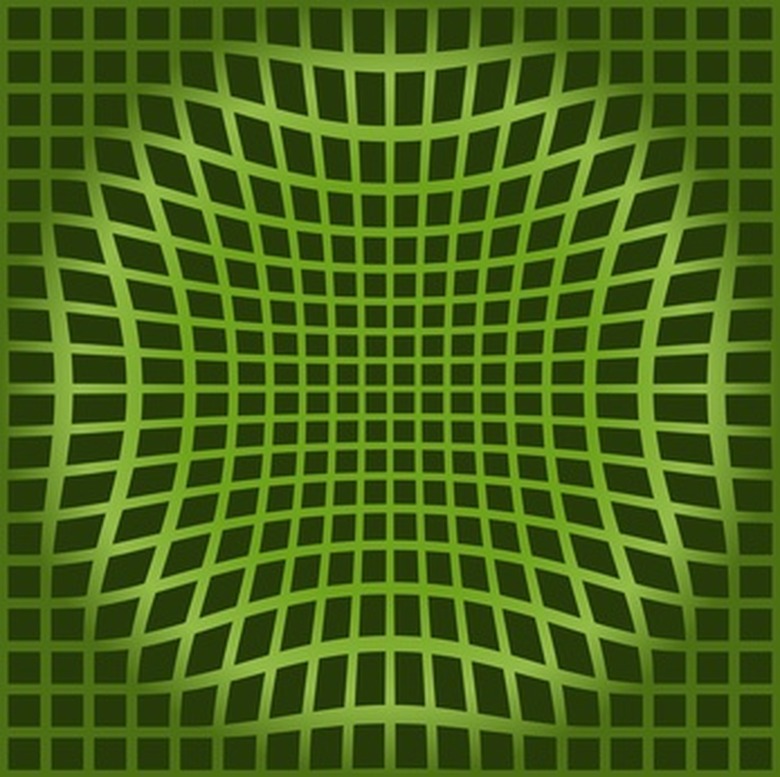Optical Illusions Science Projects
Optical illusions are objects or images that initially appear different from objective reality. Optical illusions rely on the brain picking up on certain signals and giving these signals more importance than other signals in the picture. When you are planning a science project, experimenting with optical illusions can give you a wealth of different subjects to take on.
Do Girls Spot Optical Illusions Faster Than Boys?
Do Girls Spot Optical Illusions Faster Than Boys?
This experiment can be conducted by offering both boys and girls a chance to look at optical illusions. Keep track of how long it takes the subjects to figure out the nature of the optical illusion, whether that is looking for a hidden image in a picture or understanding what they are really looking it. The boys and girls should be tested independently and the speed and success that they have will tell you if there is a difference between the way that the different sexes perceive optical illusion.
Do Near-Sighted People Have More Problems with Optical Illusions?
Do Near-Sighted People Have More Problems with Optical Illusions?
Optical illusions are all about tricking the eye, and this experiment asks whether people who are near-sighted are more apt to be tricked than people who are not. Your control group will consist of people who have 20/20 vision, while people who are near-sighted are your test subject. Time how long it takes near-sighted people to figure out the optical illusions compared to people who have perfect vision.
Black and White Optical Illusions Versus Optical Illusions in Color
Black and White Optical Illusions Versus Optical Illusions in Color
Does color have an effect on how hard an optical illusion is to solve? There are many different optical illusions out there, and in many of them, color or the lack of it is an important factor in how it tricks the eye. Show both black and white optical illusions to your group of subjects as well as optical illusions that contain color and see which set of optical illusions is solved more quickly.
What Does the Mind Go Through When Looking at Optical Illusions?
What Does the Mind Go Through When Looking at Optical Illusions?
This science project will rely on data that already exists, but it can be a great way to demonstrate how the brain reacts to different forms of stimuli. Gather up images and grafts related to brain activity when the person is being shown optical illusions and when the brain is at rest. This project will give the student a better understanding of how the brain works when it is working with an image that is telling it.
Cite This Article
MLA
Ma, Lanh. "Optical Illusions Science Projects" sciencing.com, https://www.sciencing.com/optical-illusions-science-projects-6026082/. 24 April 2017.
APA
Ma, Lanh. (2017, April 24). Optical Illusions Science Projects. sciencing.com. Retrieved from https://www.sciencing.com/optical-illusions-science-projects-6026082/
Chicago
Ma, Lanh. Optical Illusions Science Projects last modified August 30, 2022. https://www.sciencing.com/optical-illusions-science-projects-6026082/
